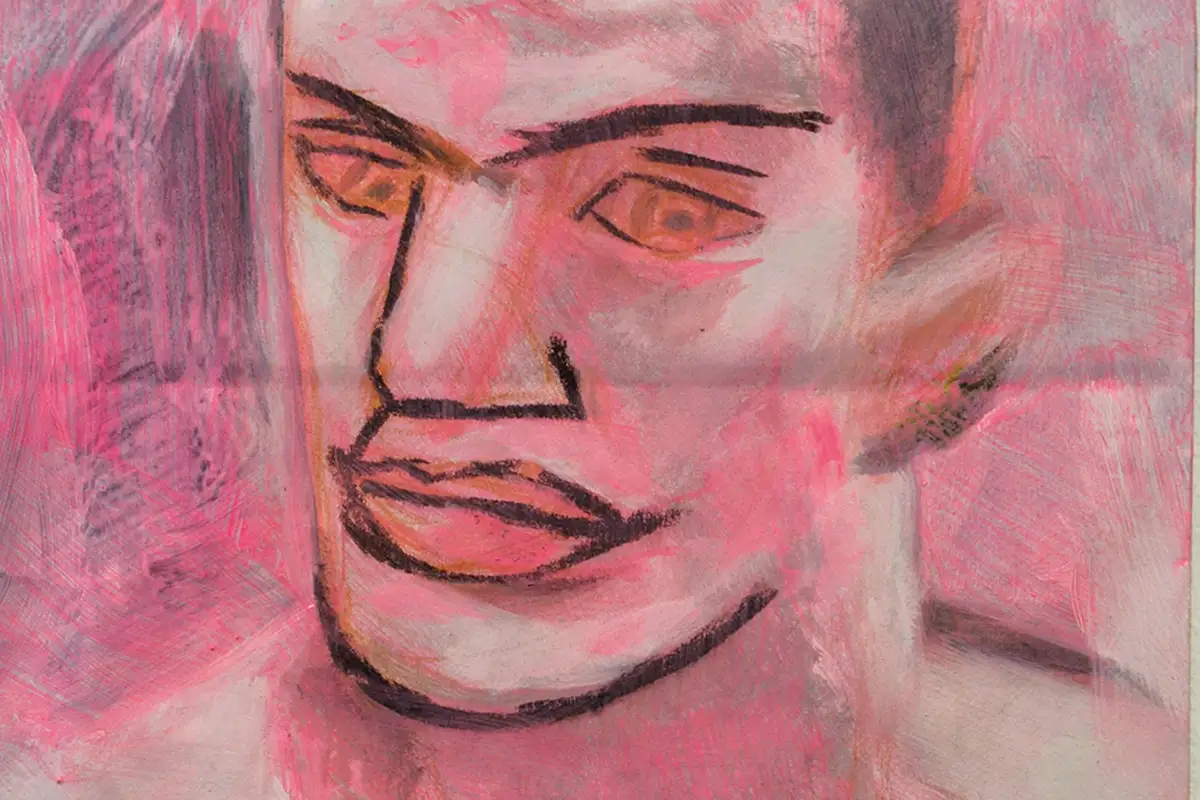Benjamin Labatut looks at the major scientific breakthroughs of the last century. How they show that we have ceased to understand the world
Benjamin Labatut When We Cease to Understand the World
Benjamin Labatut’s book When We Cease to Understand the World (translated by Adrian Nathan West) is a nonfiction novel. It descres real scientists of the 20th century, based on historical fact with fiction woven throughout. Despite what you may think, it covers human lives and what it means to exist in this world. The lives he discusses are scientists, but they are also ordinary people balancing human issues of ethics and morals. All the characters in this story are real ones.
Labatut balances the line between fact and fiction. Creating an enthralling world between the two to demonstrate the contradictions and reach of these men and their discoveries. Labatut argues that this writing style offers more to the reader. As it can go beyond pure history and fact to shed light on those undiscovered and unrecorded areas such as «inner worlds, paradoxical discoveries, nightmare visions and the ecstasies of those who have touched upon things that no one has seen or imagined before».
Scientific discoveries of the 20th century
Prussian Blue, the first «quasi-essay», as Labatut calls it, is based on fact and hinges on the discovery of hydrogen cyanide. In the essay, Labatut moves at pace crisscrossing through Europe, through time taking the reader from the suicides of Nazi leaders at the end of World War Two, to the chemical’s creation as a paint color, to its use as a poison gas in the trenches.
According to Labatut, the reason this story could be so factual came from the substance of the raw data which covered a broad scope of topics each of which complex and difficult to believe. The book becomes more abstract and fictitious as it progresses, mirroring how the ideas and discoveries become more abstract too, moving from chemical scientific discoveries to quantum mechanics. In the later stories, fiction is used by Labatut to fill the gaps and go beyond science to understand the protagonists of the text.
He acknowledges that the majority of this comes from the fact that much of history is unrecorded and he has no choice but to use his imagination. One place where this is particularly clear is in the titular story, When We Cease to Understand the World, which analyses the rival discoveries in quantum mechanics of Schrödinger and Heisenberg. Both men spent some time away from their homes just before discovering their rival equations, but very little is known of it.
For example, we know that Shrodinger spent a week at a ski resort with his lover but who she was is unclear. In his retelling of the story, Labatut completes the narrative. «If there is uncertainty regarding the genre, or if the line between fact and fiction became blurred, it is because I am writing about ideas which embody that uncertainty, discoveries that go beyond our current capabilities, and that push past the limits of understanding».The uncertainty within science and its effect on how we live our lives is central to the book, from the first chapter which looks at the far-reaching effects of only one chemical to the fundamental difficulty of understanding quantum mechanics.
Understanding quantum mechanics
In the final chapter, The Secret Gardener, the narrator explains, «Take quantum mechanics, the crown jewel of our species, the most accurate, far-ranging and beautiful of all our physical theories. It lies behind the supremacy of our smartphones, behind the Internet, behind the coming promise of godlike computing power. It has reshaped our world. We know how to use it, it works as it is by some strange miracle, and yet there is not a human soul, alive or dead, who actually gets it. The mind cannot come to grips with its paradoxes and contradictions. It’s as if the theory had fallen to earth from another planet, and we simply scamper around like apes, toying and playing with it, but with no true understanding».
Labatut, as the title suggests, believes we have ceased to understand the world. For him there are enormous parts of the real world, reality and our imagination that we cannot understand and in many ways we enter into with an element of risk. This lack of understanding is something exciting and fun as if everything was under control it would be ‘hellish’.
He is not sure whether we can ever understand the world again due to fundamental irregularities and singularities that cannot be traced. While to the rational and scientific mind there appear to be laws by which the world is governed, he argues that the further we progress the more we cease to understand rather than less.
Genius scientists
When We Cease to Understand the World is a book of contradictions, progress vs. destruction, genius vs. madness, fact vs. fiction, perhaps underlining the contradiction between the two equivalent and yet contradictory versions of quantum mechanics discovered by Schrödinger and Heisenberg. Labatut believes we live in such a conflicting world because of the strict categories, orderly principles, and models of logic we use to define our lives.
Yet, contradictions are just how the world works in many ways, and imperfection is part of life. «As human beings, we want to rid ourselves of these enigmas, to live in a world where black is not white, but we have to consider that many of our perceptions, thoughts, and dreams are made of a different substance, and have hidden, nested layers which manifest in inherently paradoxical ways. And we should be thankful for that».
The scientists throughout Labatut’s book are searching to get rid of enigmas, but in the quest for these answers, they all obsess to the point of destruction and experience a breakdown into madness. This personality trait of being so fixated on a problem that they drive themselves mad can be perhaps traced to how they all can be described as geniuses.
Isolation brings breakthroughs
Their obsession takes over. For Labatut, «Obsession is a form of weaponized attention: you fixate on a single aspect of the world and shut out everything else. That narrow, focused vision, which is important for Science, leads to particular blind spots. Obsession is a dangerous mechanism by which you reduce the world to one desire, to a single, fixed point; the problem is that, when you concentrate on something, its power grows. Its gravitational force increases, and it can destroy you if you are not careful».
The way that some people are geniuses, Labatut sees it as a «human singularity» unlike anything else in nature. He finds this human potential to create and establish new capabilities incredibly fascinating . He is in awe of those who can be described in this way. Even though, as his book frequently demonstrates, this genius does not come without a price.
Throughout the stories, the protagonists’ genius often comes at a cost, whether moral corruption, intense obsession, or damaging relationships. All the scientists that Labatut explores go through a period of isolation. Leading to world-changing breakthroughs such as Grothendieck’s visionary innovations in mathematics. The last year has been a period of intense isolation for much of the world’s population. If there is a connection between isolation and discovery, one could assume that the next year will see a boom in breakthroughs.
Why is isolation precious?
Labatut is keen to distinguish between the isolation we have experienced due to government intervention, and the isolation one enters into voluntarily. He explains how people who go into isolation independently do so to get away from others and their influence on their thoughts, arguing that only in isolation can you find original ideas uninfluenced by others.
«That is why isolation is precious. When you remove yourself, not just physically but spiritually and intellectually, from your peers, class members, family, and friends, you are betting it all. You’re trying to find something new, but there are no guarantees that you will succeed, and there are even fewer guarantees that you will be able to transmit what you find to others. You cannot know beforehand if you will ever come back».
This is different to how we are currently living; «In a sense, a life that is lived in true isolation is not a human life, but a life that is shared in its minutest details, as so many people are living now, is not just inhuman, but a waste, a sin, a source of unending shame».
The importance of science
As we look forward to our life post-isolation, we shall see whether we will come out with a greater understanding of the world and what it means to be human. As we begin to try and understand the world again, Labatut argues that we need multiple and contradictory perspectives as every viewpoint has blind spots, prejudices, and advantages.
«We must not only shine the light of reason. We have to dive deep into the irrational, headlong into our unconscious, because it is this – the unconscious – which keeps us alive, and from which the most important things arise and take the form». Labatut’s book uses scientific protagonists to demonstrate the full depth of human capability and highlight the complexities of a contradictory world.
The book leaves readers with more questions than answers and encourages them to consider the world more broadly. Perhaps this will inspire more change and comprehension. As Labatut says, «Science in particular, and humankind as a whole, only makes real progress when we smash our worldview or focus on the parts that don’t fit together. The cracks are the most important aspect in any scheme of things».
Benjamín Labatut
Chilean author born in Rotterdam, The Netherlands, in 1980. He spent his childhood in The Hague, Buenos Aires and Lima, before settling in Chile. Where he currently lives and works. His first book of short stories, Antarctica starts here, won the 2009 Caza de Letras Prize in Mexico, and the Santiago Municipal Prize, in Chile. His second boChilean author born in Rotterdam, The Netherlands, in 1980. He spent his childhood in The Hague, Buenos Aires, and Lima, where he currently lives and works
After the Light, his second book consists of scientific, philosophical, and historical notes on the void. It was written after a deep personal crisis. When We Cease to Understand the World is his third book.





















